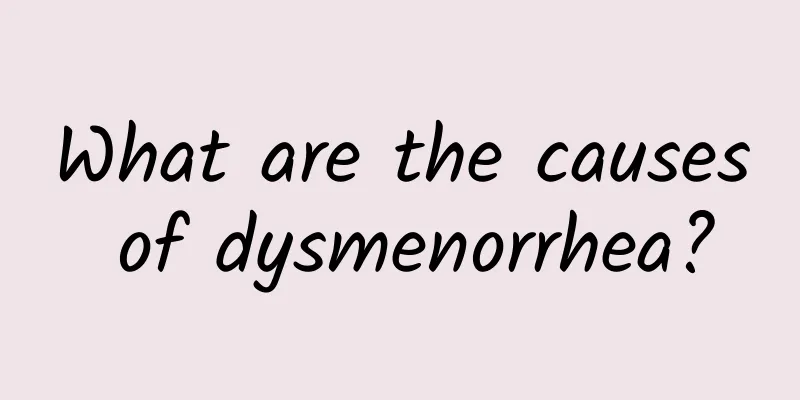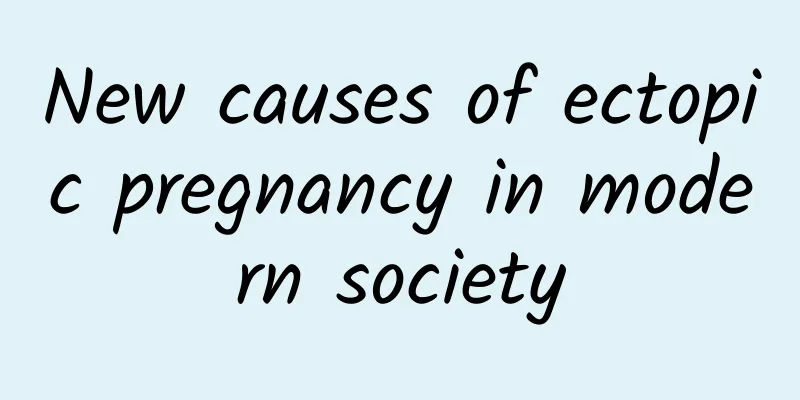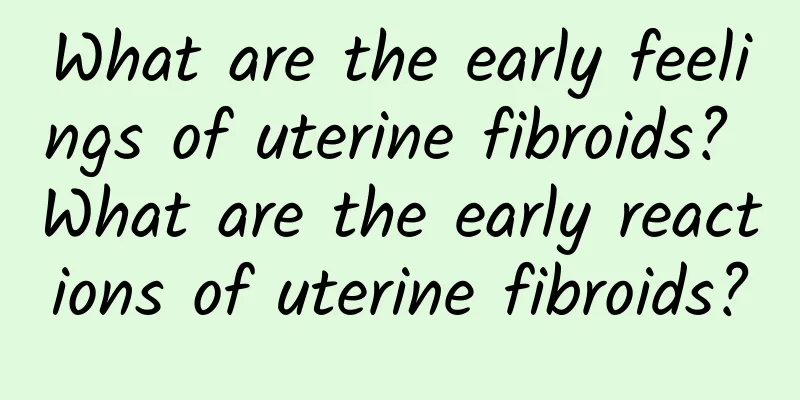Beware of uterine fibroids affecting pregnancy. Traditional Chinese medicine treatment of uterine fibroids

|
Beware of uterine fibroids affecting pregnancy. Traditional Chinese medicine treatment of uterine fibroids Uterine fibroids are the most common benign tumors of the female reproductive organs. Different types of uterine fibroids can present clinical manifestations such as menorrhagia, lower abdominal mass, or difficulty urinating or defecating, and are also known as uterine leiomyoma. 1. Early menopause in women without children: Women have a limited number of primordial follicles in their lifetime, and they ovulate for about 30 years. During pregnancy and lactation, the ovaries stop ovulating due to the action of hormones, which delays ovulation by a certain amount. Women with a history of childbearing will enter menopause later. 2. Depressed women are more likely to have uterine fibroids: With the arrival of menopause, women's own depression can easily increase the secretion of estrogen and strengthen its effect, which can sometimes last for several months or even years. This is also an important cause of uterine fibroids. 3. Sexual dysfunction: Normal sexual stimulation between couples can promote the normal functioning of neuroendocrine system and enable the body to secrete hormones normally and well. However, long-term sexual dysfunction can easily lead to hormone level disorders, causing chronic pelvic congestion and inducing uterine fibroids. Beware of uterine fibroids affecting pregnancy Uterine fibroids are the most common benign tumors of the female reproductive organs. Different types of uterine fibroids can present clinical manifestations such as menorrhagia, lower abdominal mass, or difficulty urinating or defecating, and are also known as uterine leiomyoma. 1. Early menopause in women without children: Women have a limited number of primordial follicles in their lifetime, and they ovulate for about 30 years. During pregnancy and lactation, the ovaries stop ovulating due to the action of hormones, which delays ovulation by a certain amount. Women with a history of childbearing will enter menopause later. 2. Depressed women are more likely to have uterine fibroids: With the arrival of menopause, women's own depression can easily increase the secretion of estrogen and strengthen its effect, which can sometimes last for several months or even years. This is also an important cause of uterine fibroids. 3. Sexual dysfunction: Normal sexual stimulation between couples can promote the normal functioning of neuroendocrine system and enable the body to secrete hormones normally and well. However, long-term sexual dysfunction can easily lead to hormone level disorders, causing chronic pelvic congestion and inducing uterine fibroids. |
>>: How is pelvic inflammatory disease caused?
Recommend
Eat happily all the way to a good figure, 6 female stars control weight lazy package to tell you
If you want to be thin and beautiful, in addition...
Common symptoms of cervical hypertrophy include increased vaginal discharge
The emergence of cervical hypertrophy has harmed ...
What is the difference between induced labor and miscarriage?
What is the difference between induced labor and ...
Can I take medicine for a cold after an abortion? Taboos for women after an abortion
After women have had an abortion, experts will ad...
Eating half an hour after exercise can reduce body fat by 25%
Don’t dare to eat after exercise, for fear of acc...
The probability of infertility caused by pelvic effusion
Many young female friends are very afraid of suff...
In autumn, your appetite improves, but is it becoming increasingly difficult to lose weight? 4 major types of food promote metabolism and burn fat
The weather is getting cooler in autumn. Do you f...
The main causes of pelvic inflammatory disease in women
In recent years, many women have suffered from pe...
What are the main symptoms of menopause?
Medical research shows that menopause is caused b...
Dietary fiber is environmentally friendly in the body! Pears are high in fiber
In winter, we drink less water, do not like to ex...
Stop eating watery foods to lose weight! In fact, eating oil will not make you fat, but sugar is the key to losing weight
The source of body fat accumulation is "suga...
Less harmful abortion methods
Choose a less harmful abortion method. Medical ab...
How to regulate irregular menstruation in 20 years old Common examination methods for irregular menstruation in girls
What to do if you have irregular menstruation in ...
What medicine is effective for low estrogen and premature ovarian failure?
Low estrogen and premature ovarian failure, i.e. ...
Will abnormal vaginal discharge affect menstrual delay?
Will abnormal leucorrhea affect delayed menstruat...









